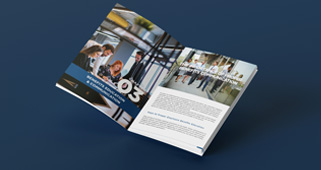The Most Frequently Asked Open Enrollment Questions, Answered
Open enrollment periods can be complicated, even for Human Resources professionals. And for employees, selecting the perfect mix of health coverage benefits during an open enrollment period can seem tricky. It might feel like there are so many options, and such a short time frame for employees to make their decisions. Employees may have a lot of questions, and they also might not even know what they don’t know! In an effort to assist Human Resource professionals with the education of employees on open enrollment, we’ve answered the most frequently asked questions about the process. Read on for the basics of open enrollment information!
First things first: What Exactly is Open Enrollment?
When an employee first gets started with their current company, they are in an “enrollment period.” At this stage, employees are free to choose their health benefits, or to decline them entirely. Similarly, every year, your company’s health plan sets a period of time they deem the “open enrollment period.” As a part of what’s called the “renewals process,” the employer decides which plans employees will be able to select from during the open enrollment period. During the open enrollment period, employees get the same opportunity to choose different benefits, or, just like when they started, decline certain benefits, or decline benefits altogether.
If employees believed they were under-insured or over-insured previously, the open enrollment period is their opportunity to change the amount of health insurance, life insurance, disability insurance, vision insurance, dental insurance, and supplemental insurance benefits they opt into. Almost always, open enrollment periods are annual—they only happen once per year. The new changes an employee elects will apply to the upcoming year of coverage.
Your company’s enrollment period may also allow decide to allow employees to establish an “FSA,” or flexible spending account (sometimes called a health savings account) during that time period. Employees can contribute to these accounts, or stop contributing to these accounts, at any time, but they typically must establish the account during the open enrollment period.
During COVID-19, the IRS has allowed employers some leniency in the periods for employees to establish their flexible spending accounts. Going forward, however, it’s important to remember this leniency may change.
When Does an Open Enrollment Period Occur?
What we’ve described above makes it sound like there are only two ways to change, add, or decline benefits from a health coverage benefits package: when an employee starts with their new employer, or during a set period of time.
There’s actually a third instance in which an enrollment period would open, regardless of your company’s health plan. A special enrollment period will open if an individual has experienced a “Qualifying Life Event,” or a QLE. A qualifying life event is defined by healthcare.gov as a “change in your situation—like getting married, having a baby, or losing health coverage—that can make you eligible for a Special Enrollment Period, allowing you to enroll in health insurance outside the yearly Open Enrollment Period.”
If the Open Enrollment Period Closed, Can You Still Make Changes to Health Coverage?
Even if an employee has been with their current company for a while, or if they are not in the defined annual open enrollment period, the federal government mandates that health plans must allow special enrollment for a qualifying event. Because this is federally mandated, the same QLEs exist in all fifty U.S. States. There are four basic types of qualifying life events that would trigger a special enrollment period. We’ll list them below and provide some examples of what they may look like in actuality.
What Counts as a Qualifying Life Event?
1) Loss of health coverage. This would occur if an individual was starting with a new employer. It could also happen if an individual lost eligibility for Medicare, Medicaid, or CHIP. And even if an employee has been with your company for some time, a special enrollment period would open if they recently turned twenty-six and lost coverage through a parent’s plan. (The federal government allows individuals to stay covered as dependents on a parent’s health coverage until they turn twenty-six).
2) Changes in Household. Some changes to an individual’s household also count as qualifying life events. Qualifying changes include a marriage, a divorce, the birth or adoption of a child, or a death in the family.
3) Changes in Residence, such as a move to a different ZIP code or county.
4) Other Qualifying Life Events, such as: changes in income that affect the coverage an individual qualifies for or gaining U.S. citizenship.
It’s Open Enrollment Period. What Advice Can I Give to Employees During the Process?
If an employee comes to you with questions, ask them whether they’ve been happy with their current coverage. Do they think their deductible is too high? Do they wish their prescription costs were lower? Did they think they wouldn’t need dental insurance, and now they realize they do? If they’re totally happy, that’s great news, and as long as the plan they have is still being offered for the upcoming year, they don’t have to change anything. If they do want to change your coverage, though, now is the time!
Here are some considerations to keep in mind when an employee is deciding whether to change their coverage:
- Will a child they claim as a dependent be turning twenty-six this coming year?
- Are the doctors they like to see covered by the current plan?
- Would it make more sense for them, economically, to lower their monthly benefits payments?
- Do they expect to have more doctor, dental, or vision appointments this year, or fewer visits?
- Are they anticipating or have they experienced any family changes, such as a new marriage or the birth or adoption of a child?
The open enrollment period can be a confusing time for employees and human resources professionals alike. And as a professional, you know how important it is to make the best health coverage choices for your company. If your organization would benefit from access to certified HR experts, it’s time to contact Benely.






